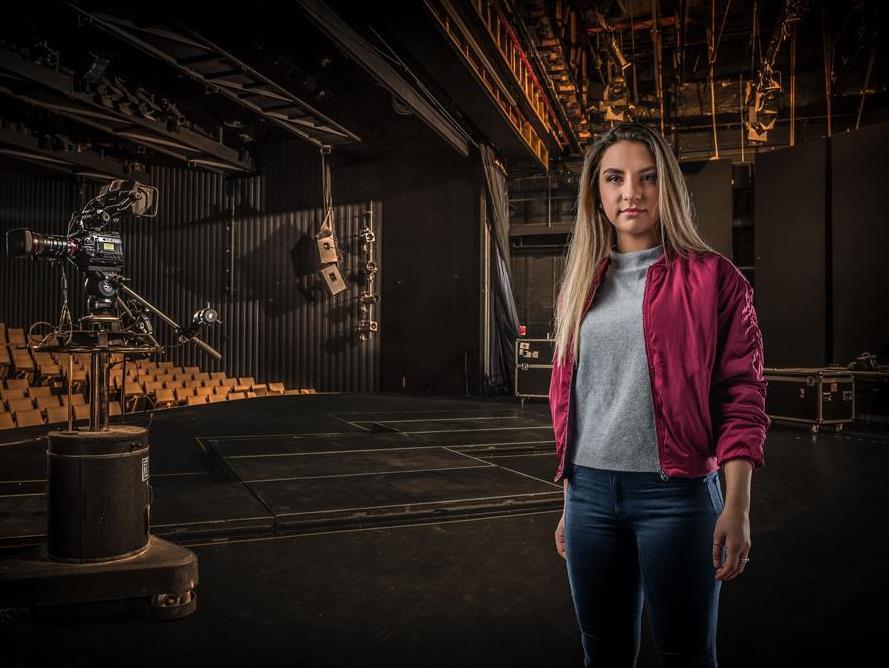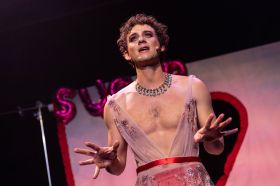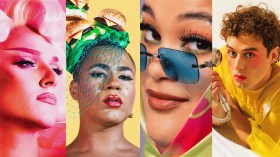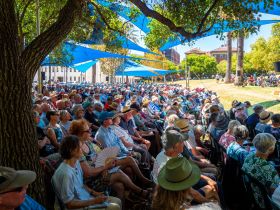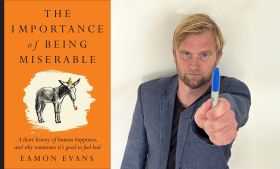Image supplied.
The discussion around future employability is framed by one overarching problem: we can’t accurately anticipate how our industry and world will change. But that doesn’t mean we can’t be prepared for changes, especially as new technologies and alternative ways of working are introduced.
As it turns out, there is good news for those working in the creative industries. Dr Tully Barnett, Senior Lecturer in Creative Industries at Flinders University said, ‘The world is starting to realise that it is Humanities and Creative Arts that are the go-to disciplines of the future.
‘As the Fourth Industrial Revolution changes the nature of work, creativity and critical thinking become the two flagship skills that are not (or at least not yet!) replaceable by machines. Humanities and Creative Arts degrees embed highly transferable skills. These are the skills needed to face the complexity of the future.’
To find out more about what skills are needed and how academics at Flinders University are preparing students for the future, we spoke to Dr Barnett and Katie Cavanagh, Lecturer in Creative Arts. Here’s their advice.
Get comfortable with not knowing
Cavanagh said: ‘Everything is always changing in Digital Media. Students have to be adaptable, be innovative and be comfortable finding their own solutions to problems.’
It is important that students not be afraid of finding answers or testing their ideas, she said.
‘When people are afraid of doing the wrong thing that often means they are afraid to do anything. And that’s something you can’t do in the creative arts. You have to constantly be looking forwards.’
Invest in a solid foundation
Flinders is ranked #1 in the world in Digital Media after winning The Rookies Award in 2017 and 2018. The University’s proactive approach to learning, and a strong basic foundation, sets graduates apart.
‘We work a lot of basic foundations,’ explained Cavanagh. ‘Because we’re visual effects and entertainment design we do a lot of art and a lot of technology. These are core skills that students just have to have.
‘We teach people not to be nervous around new software, we teach people foundations that have critical thinking, emotional intelligence, line and form and colour. We think that if you have really good foundation knowledge, then you can move forward from there with confidence.’
Real world experience
Cavanagh and Barnett both stressed that having a wide range of experiences is an important bedrock for any career. This is a value embedded in the Creative Arts programs at Flinders University where Work Integrated Learning is part of each course.
In the new Bachelor of Creative Industries (launched in 2019) students are better prepared for industry demands and careers in creative arts management and business because of this hands-on approach to learning.
‘For our Creative Enterprise degree that means participating in a work placement in the third year, going out into Adelaide’s creative industries of all kinds to obtain real-world experience and networking prior to graduation. We also have some placement connections interstate as well that students benefit from if they are keen to do that,’ said Barnett.
Funding opportunities in the College of Humanities, Arts and Social Sciences also means international trips are subsidised for students, with many successfully applying to attend the Hong Kong Film Festival or visiting Indonesia for Drama.
Always have a plan B
While failure is certainly never something you strive for, Cavanagh said, it often means you’re trying something different; something you haven’t done before. After all, that’s how expertise is developed.
‘An expert is someone who knows how to correct the path when something is starting to go sideways. An expert is doing automatic corrections all the time. So having a wide range of experience – and I think a good creative always has in the back of their mind, if this doesn’t work then I am going to try X – as long as you have something else to try you really haven’t failed. It is about coming up with more and more solutions until you solve the problem you are trying to solve.’
Flinders University is a leader in the Creative Arts and offers a comprehensive list of world-class, industry focused degrees with industry leading teachers. To find out more about Creative Arts degrees at Flinders, visit flinders.edu.au.

